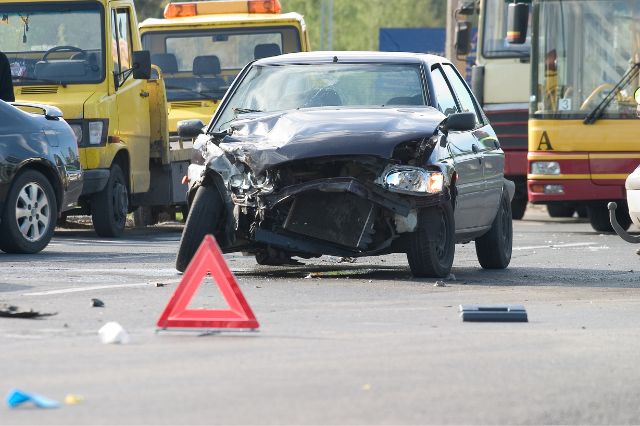Car accidents can be devastating, both physically and emotionally. However, the aftermath of an accident can be just as overwhelming and confusing, especially when you are not sure what steps to take to protect your rights. Fortunately, a Walnut Creek Car Accident Lawyer can provide you with the guidance and advice you need to ensure that your rights are protected.
From dealing with insurance companies to filing a lawsuit, there are a variety of legal procedures that can be intimidating for those who are not familiar with the legal system. But with the right guidance and knowledge, you can navigate these processes with confidence. In this blog post, I will share tips and advice on how to protect your rights after a car accident from a lawyer’s perspective.
1. Seek Medical Attention Immediately
If you are involved in a car accident, your first priority should be to seek medical attention immediately. Even if you feel fine, you may have underlying injuries that are not immediately apparent. Delaying medical treatment can not only harm your health but also negatively impact your legal case.
Insurance companies may argue that your injuries were not caused by the accident if you did not seek medical attention right away. Additionally, some injuries may not manifest symptoms until later, so it is crucial to get a medical evaluation as soon as possible. Seeking medical attention immediately can also help document your injuries and establish a clear record of the accident, which can be important in legal proceedings.
2. Document the Scene with Photos
After a car accident, documenting the scene is crucial in protecting your rights and potentially strengthening your case. One of the most effective ways to document the scene is by taking photos. As soon as possible, take photos of the damage to all vehicles involved, the positioning of the vehicles, any visible injuries, and any debris on the road.
Here are some other things to look out for when taking photos:
- Road or weather conditions
- The speed limit and any traffic signs near the accident
- Skid marks on the road
- The location of witnesses and their contact information
These photos will serve as evidence that can be used in your case, so make sure they are as clear and detailed as possible.
3. Collect Witness Contact Information
One of the key steps to protect your rights after a car accident is to collect the contact information of any witnesses who were present at the scene. Witnesses can provide invaluable testimony to support your version of events, especially if there is a dispute over who was responsible for the accident. When collecting witness information, be sure to get their full name, phone number, and email address if possible.
It’s also helpful to ask if they’re willing to provide a written statement or testify in court if necessary. Remember to be polite and professional when approaching witnesses, and avoid discussing fault or blame for the accident with them.
4. Do Not Apologize or Admit Fault
In the aftermath of a car accident, emotions are high, and it can be tempting to apologize or admit fault, even if it was not entirely your responsibility. However, it is crucial to avoid making any statements that could be interpreted as an admission of guilt. This is particularly important when speaking with law enforcement officers and insurance adjusters.
The consequences may include the following:
- Your insurance company may deny your claim, as admissions of guilt can be used against you in a court of law.
- Law enforcement may use your statement against you and charge you with a criminally negligent act.
- The opposing party may use your apology as evidence that the accident was completely your fault, which could weaken your case in a lawsuit.
5. Contact Your Insurance Company
Your insurance policy likely requires you to report any accidents promptly, and failing to do so could result in a denial of coverage or other complications down the line. Additionally, your insurance company can provide guidance on what steps to take next, such as arranging for vehicle repairs or medical treatment. Be sure to provide your insurance company with as much information as possible about the accident, including the names and contact information of any other drivers involved.
6. Do Not Sign Anything Without Legal Consultation
Insurance companies are quick to offer settlements after an accident. However, it’s crucial to remember that their goal is to protect their bottom line, not necessarily to ensure you receive the compensation you deserve. Before signing any documents, it’s essential to consult with a lawyer who can help you understand your rights and ensure that you don’t inadvertently sign away your ability to seek the full compensation you’re entitled to.
Remember, once you sign a settlement agreement, you generally can’t go back and renegotiate later. Take the time to talk to a lawyer and make sure you fully understand the implications of any documents before you sign them.
7. Hire an Experienced Car Accident Attorney
An attorney can assist you in navigating the complex legal process and ensure that you receive fair compensation for your injuries and damages. It’s important to choose an attorney who has experience in handling car accident cases and knows how to negotiate with insurance companies. They can help you build a strong case by gathering evidence, interviewing witnesses, and presenting a compelling argument on your behalf.
Here are some questions to ask when interviewing potential lawyers:
- How much experience do you have handling car accident cases?
- Do you have any specialized knowledge or qualifications relevant to my case?
- What strategies will you use to help me receive the compensation I deserve?
- What are your fees, and how are they structured?
In Conclusion
Protecting your legal rights after a car accident is crucial. Seeking legal counsel from a qualified attorney can help you navigate the complex process of filing a claim and negotiating with insurance companies. Remember, your rights to compensation and justice are protected under the law, and you deserve to receive fair and just compensation for any damages or injuries you have suffered.






